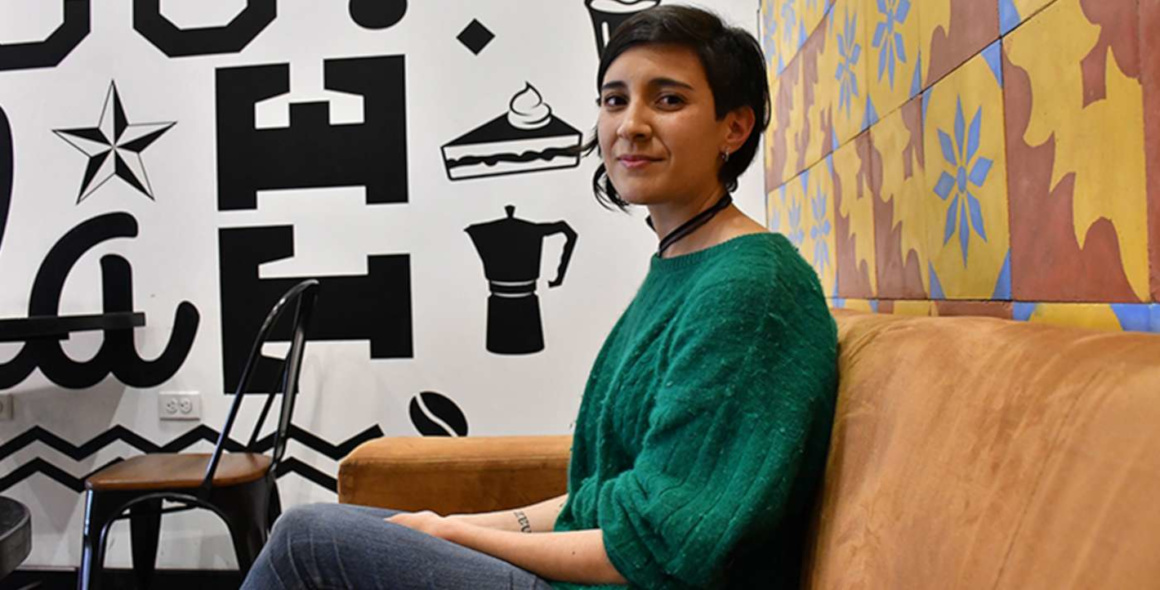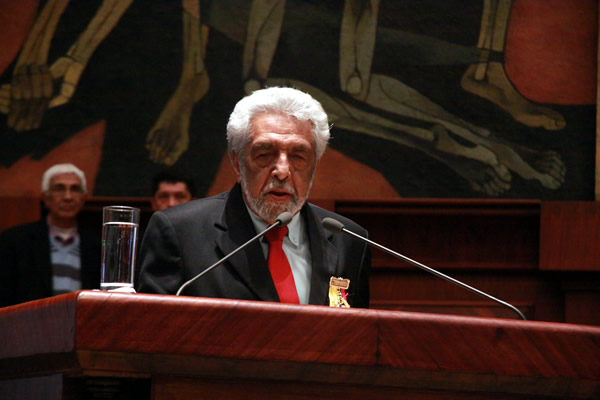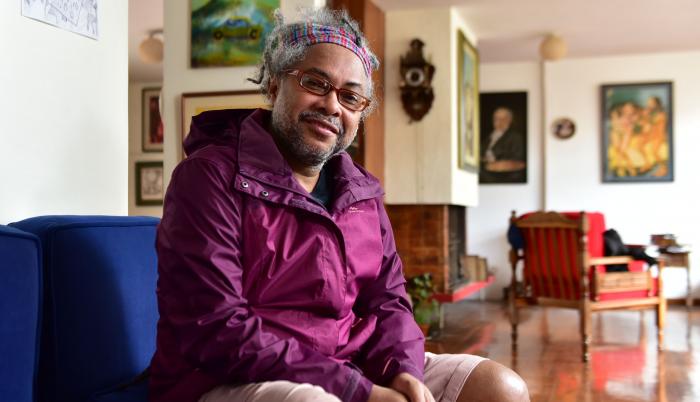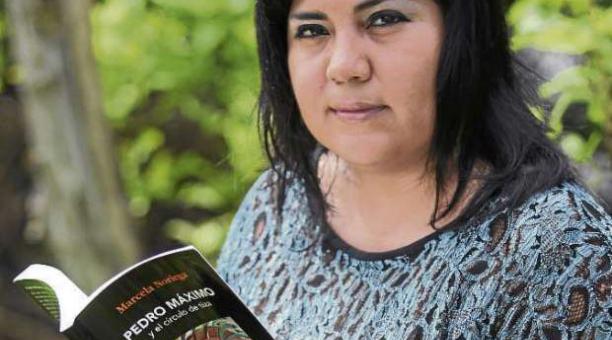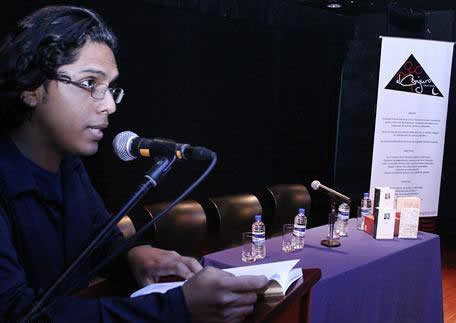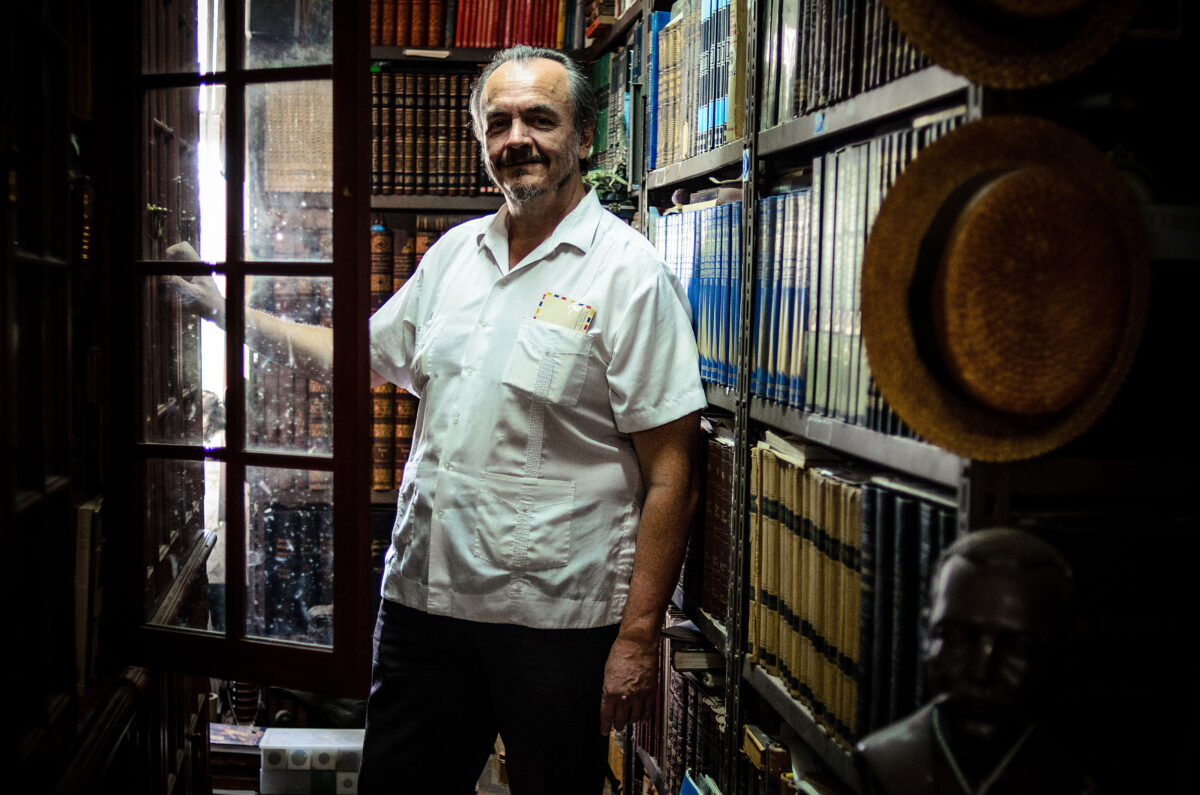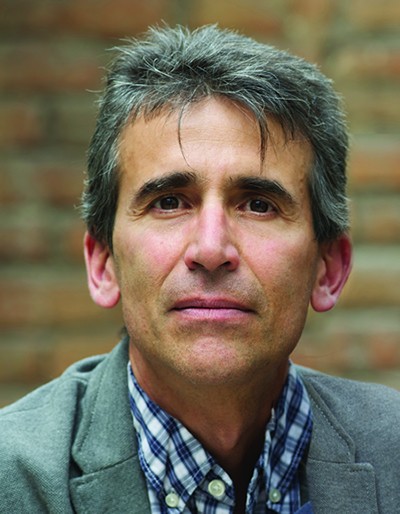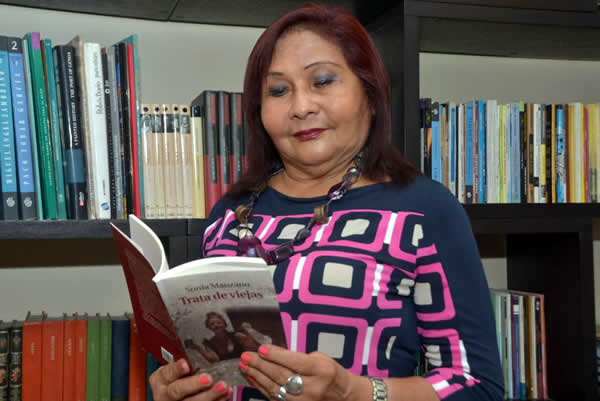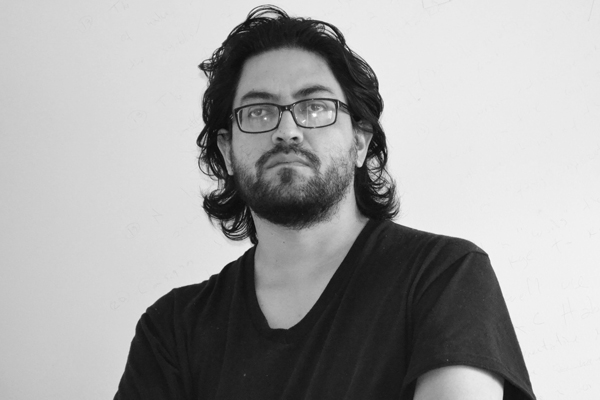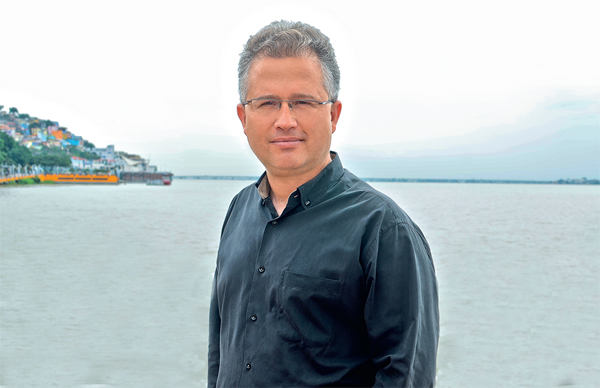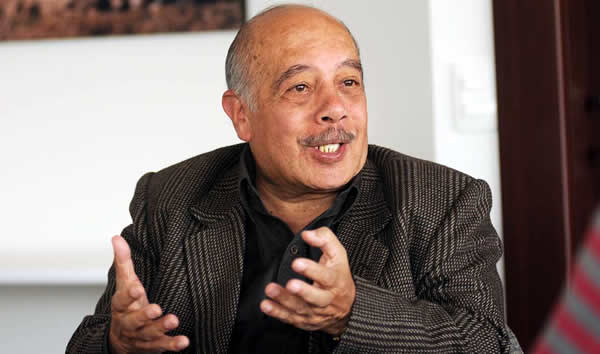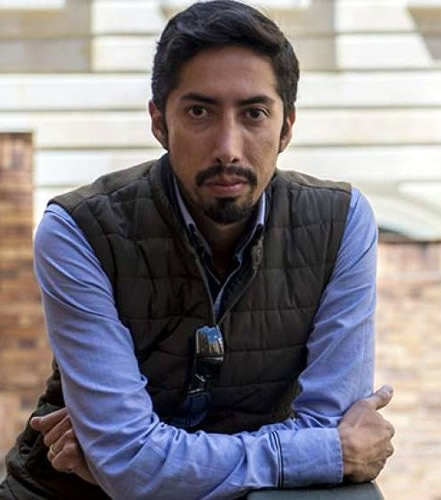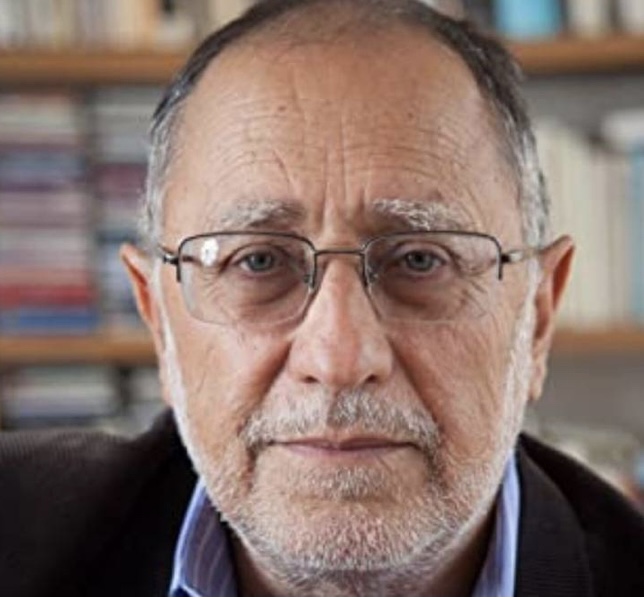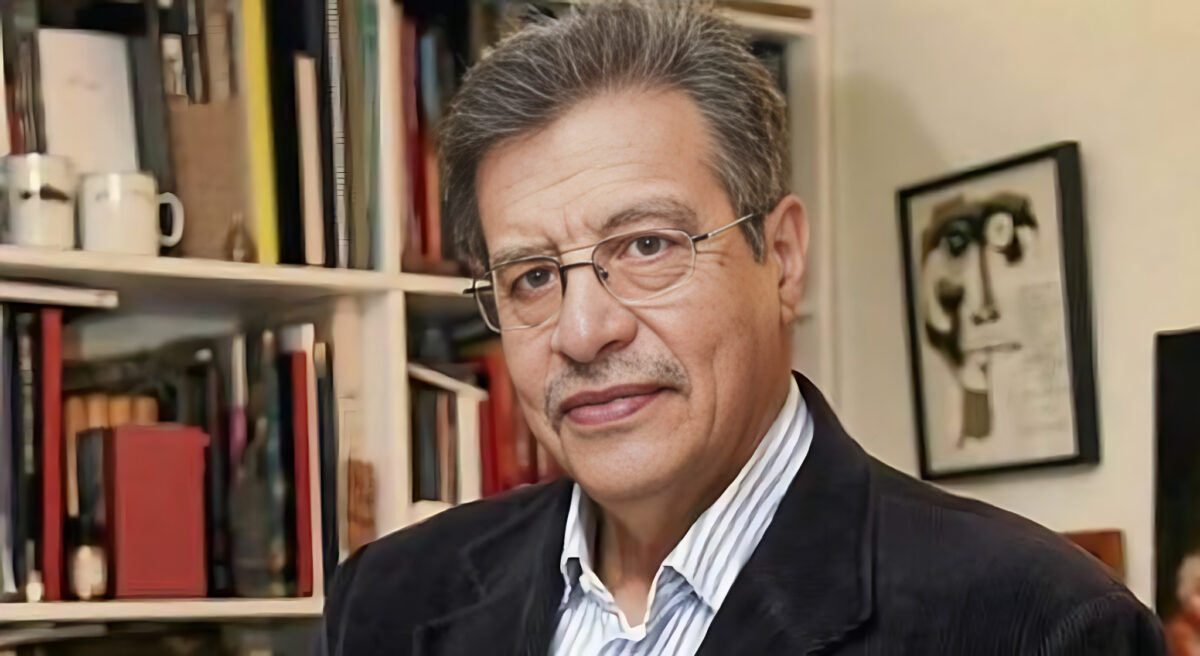Natalia García Freire (Cuenca, 1991) is an Ecuadorian journalist and writer. As a freelance writer her articles have been published in Univisión, El Hoy, Plan V Magazine, El Mercurio, CityLab Latino and BG Magazine. In 2019, Jorge Carrion of the New York Times included García’s debut novel “Nuestra piel muerta” in his article of the best Spanish-language books of the year. García currently lives in Madrid, Spain.
Continue reading “Natalia García Freire”Category: 21st Century Writers
Jaime Galarza Zavala
Jaime Alejandro Galarza Zavala (Cuenca, July 28, 1930 – Quito, July 20, 2023) was an Ecuadorian writer, poet, journalist, and politician. He was a prominent advocate for social justice and national sovereignty, publishing over 20 books, including El Yugo Feudal and El Festín del Petróleo, which exposed corruption in Ecuador’s oil industry. Galarza also authored Quienes mataron a Roldós, investigating the controversial death of Ecuadorian President Jaime Roldós. Deeply involved in political activism, he co-founded the revolutionary youth movement URJE and served as Ecuador’s first Minister of the Environment. His work garnered international attention and led to his imprisonment, with figures like Julio Cortázar advocating for his release.
Continue reading “Jaime Galarza Zavala”Andrés Villalba
Andrés Villalba Becdach is a writer and poet. He was born in Quito in 1981. He studied Social Communication in Quito, journalism in Los Angeles and Latin American literature at Sapienza University of Rome. His books include: Cuaderno Zero (2010), Luigi Stornaiolo: el arte de la digresión (honorable mention in the José Peralta National Journalism Prize, 2010), Obscenidad del vencido (2010), Menos que cero (2011), Muñones (2011), De los acorralados es el reino (2014), Soterramiento (2014), No mueras joven, todavía queda a gente a quien decepcionar (winner of the Jorge Carrera Andrade National Poetry Prize, 2015), Una natural tendencia a la desintegración (fragment, 2017; complete edition, 2018). He also put together the anthology of Ecuadorian poetry Caballo sea la noche.
Continue reading “Andrés Villalba”Francisco Santana
Francisco Santana Segura (Guayaquil, 1968) is an Afro-Ecuadorian novelist, short story writer and journalist. He has worked as a writer for the newspapers El Universo and El Telégrafo, and the magazines SoHo and Mundo Diners. His latest novel is La Piel es un Veneno (2020). His genre, often described as “dirty realism,” by critics delves deep into the gritty and unfiltered aspects of life, painting vivid pictures of reality.
Continue reading “Francisco Santana”Marcela Noriega
Marcela Noriega Rodríguez (Guayaquil, 1978) is an Ecuadorian writer, journalist and professor. She is the author of a novel, poetry books, and juvenile and children’s literature. At the age of 19, she won second place at the Biennial of Ecuadorian Poetry in Cuenca and in 2009 she won first place in the same contest with her book No hay que dar voces, published by the University of Cuenca, with support from the Ministry of Culture. She is the author of the novel Pedro Máximo y el círculo de tiza (2012).
Continue reading “Marcela Noriega”César Eduardo Galarza
César Eduardo Galarza (Guayaquil, Ecuador, 1981) is a poet, writer, cultural advisor, academic, radio presenter, and filmmaker. He was a member of the literary workshop of renowned Ecuadorian author Miguel Donoso Pareja from 1999 to 2007. Galarza debuted with Polvo fue su piel (2000), followed by contributions to Mensaje en una botella (2002) and Madera muerta (2008), which earned him recognition at the “Alfonso Carrasco Vintimilla” Ecuadorian Literature Meeting. In addition to his literary career, he has worked as a cultural advisor, and hosted a radio segment on cultural cinema.
Continue reading “César Eduardo Galarza”Melvin Hoyos Galarza
Melvin Hoyos Galarza (Guayaquil, January 9, 1956) is an Ecuadorian historian, architect, and cultural administrator known for his extensive contributions to preserving and promoting Guayaquil’s heritage. Since 1992, he has directed the Municipal Library of Guayaquil, where he oversaw the restoration of historic collections and revived the Boletín de la Biblioteca Municipal, a publication dormant for 80 years. In 2000, he was appointed Director of Guayaquil’s Department of Library, Museum, and Arts, where he transformed the city’s cultural institutions, notably founding the City’s Historical Museum. A distinguished member of the National Academy of History, Hoyos has authored significant works on Ecuadorian history, numismatics, and architecture, including La Moneda Ecuatoriana a Través de los Tiempos (The Ecuadorian Currency Through the Ages, 1998) and Guayaquil: Memorias Urbanas (Guayaquil: Urban Memories, 2007).
Continue reading “Melvin Hoyos Galarza”Adolfo Macias Huerta
Adolfo Macias Huerta (Guayaquil, 1960) is a renowned Ecuadorian novelist and psychotherapist. His significant contributions to contemporary literature have earned him critical acclaim and recognition. With works like “El Mitómano” (2018) and “Donde el sol pierde su reino” (2023), Macías Huerta showcases his talent for crafting compelling narratives that explore themes of art, pain, and the complexities of human existence. His ability to create captivating characters and challenge conventional storytelling boundaries has solidified his position as a notable figure in Ecuadorian literature, while his numerous awards, including the Joaquín Gallegos Lara Prize (1995, 2010) and the National Literature Prize (2017), highlight his literary prowess and literary impact.
Continue reading “Adolfo Macias Huerta”Sonia Manzano Vela
Sonia Manzano Vela is an Ecuadorian poet, novelist, short story writer and pianist. She was born in Guayaquil on February 27, 1947. Her poetry collection Carcoma con forma de paloma (1986) achieved commercial success. Her short story collection Flujo escarlata (1999) won the Joaquín Gallegos Lara National Fiction Prize. Her first novel, Y no abras la ventana todavía (1993) won the first prize in the “Biennial Ecuadorian Novel” contest. Her last novel, Solo de vino a piano lento (2013), was acclaimed by literary critic Antonio Sacoto as the best novel written by an Ecuadorian woman so far in the 21st century.
Continue reading “Sonia Manzano Vela”Andrés Ortiz Lemos
Andrés Ortiz Lemos is an Ecuadorian writer, sociologist, political analyst, literary critic and academic. His latest non fiction book, Crónicas del Socialismo del Siglo XXI (2019), co-written with Luis Espinosa Goded, is a libertarian analysis of how Ecuador’s socialist government has become increasingly divided as a result of corruption scandals and a collapsing economy. Ortiz Lemos currently teaches sociology and political science at the Political Science Department of the Central University of Ecuador.
Continue reading “Andrés Ortiz Lemos”Leonardo Valencia
Leonardo Valencia is an Ecuadorian novelist and short story writer. He was born in Guayaquil in 1969. He studied in Ecuador and Spain, where he obtained a degree in literary theory at the Autonomous University of Barcelona. He created the university’s writing program and ran it for several years. He currently lives in Quito where he teaches literature and creative writing at the Simon Bolivar Andean University. The literary critic Andrés Ortiz Lemos called Valencia’s latest novel, La escalera de Bramante (2019), “one of the most important novels written in the Spanish language in recent years.”
Continue reading “Leonardo Valencia”Humberto Vinueza
Humberto Vinueza Rodríguez was a writer and politician. He was born in Guayaquil in 1942 and died in Quito on March 15, 2017. During his lifetime, we published around 15 books, which earned him prestigious prizes such as the José Lezama Lima Prize (Cuba) and the Jorge Carrera Andrade Prize (Ecuador). He was part of the Tzantzismo literary movement of the 1960s Ecuador. In 1970 he published the book Un Gallinazo Cantor Bajo un sol de a perro. This book has been called a fundamental part of Ecuadorian poetry by writers such as Jorge Dávila Vázquez and Abdón Ubidia.
Continue reading “Humberto Vinueza”Jorge Luis Cáceres
Jorge Luis Cáceres is an Ecuadorian short story writer, editor and anthologist. He was born in 1982 in Quito. In 2013 he published a best-selling anthology titled No entren al 1408, a tribute to the “master of horror” Stephen King. The original edition of the book consisted of 22 Spanish-language horror stories by authors from various countries. Subsequent editions contained stories by authors of up to 30 countries, including Ecuador, Cuba, Argentina, Peru and Mexico. In 2012, he was recognized as one of “the 34 Latin American authors of unquestionable literary quality” at the Guadalajara International Book Fair.
Continue reading “Jorge Luis Cáceres”Carlos Arcos Cabrera
Carlos Arcos Cabrera (Quito, 1951) is an Ecuadorian sociologist and writer. He began his writing career with the novel “Un asunto de familia” in 1997, followed by “Vientos de agosto” in 2003 and “El invitado” in 2007, both of which won the Joaquin Gallegos Lara Prize in their respective years of publication. He has also written books for young people, including “Memorias de Andrés Chiliquinga” in 2013, which features the character Andrés Chiliquinga from Jorge Icaza’s 1934 novel “Huasipungo.”
Continue reading “Carlos Arcos Cabrera”Abdón Ubidia
Abdón Ubidia is a novelist, short story writer and playwright. He was born in Quito in 1944. He is considered one of the most important voices of modern Ecuadorian literature. In 1986 he published Sueño de lobos, which was hailed by critics as the book of the decade. It was translated into English in 1996 as Wolves’ Dream. In 2012, President Rafael Correa awarded Ubidia with the Eugenio Espejo Prize in Literature, Ecuador’s top literary prize. Ubidia’s books have been translated into many languages.
Continue reading “Abdón Ubidia”
